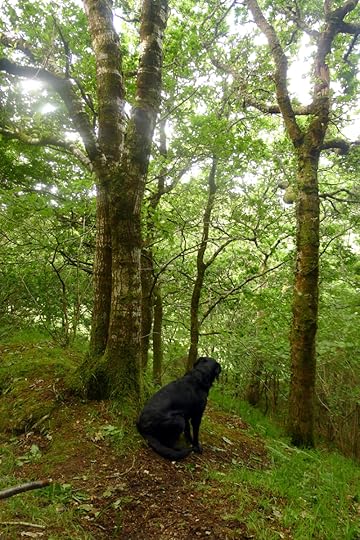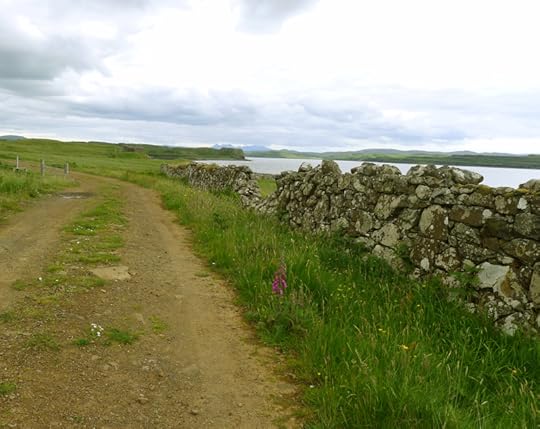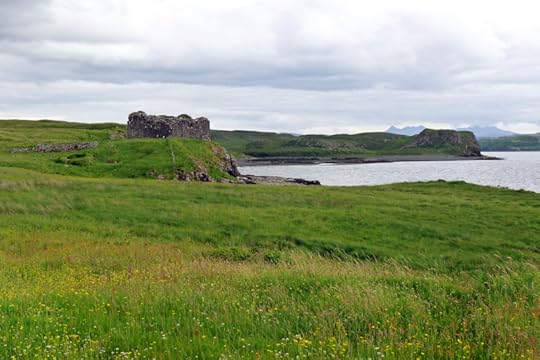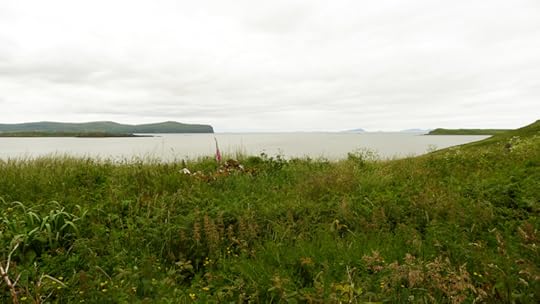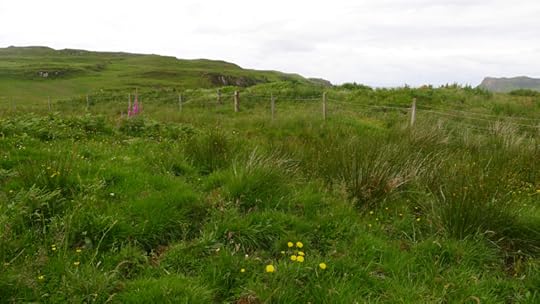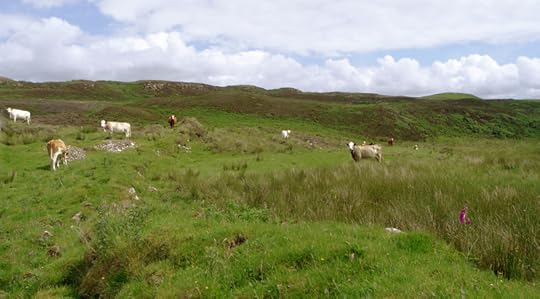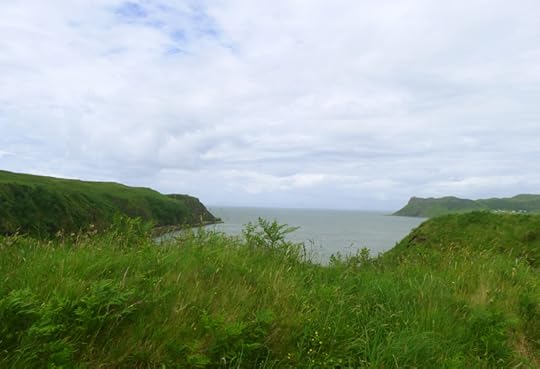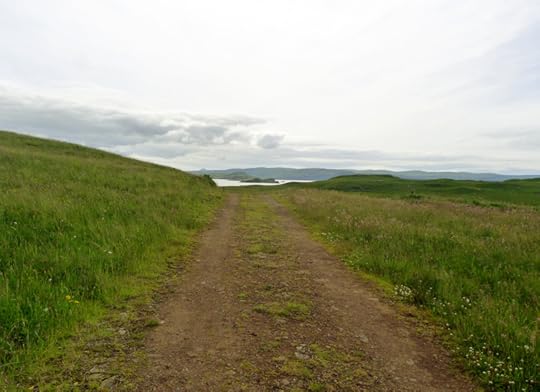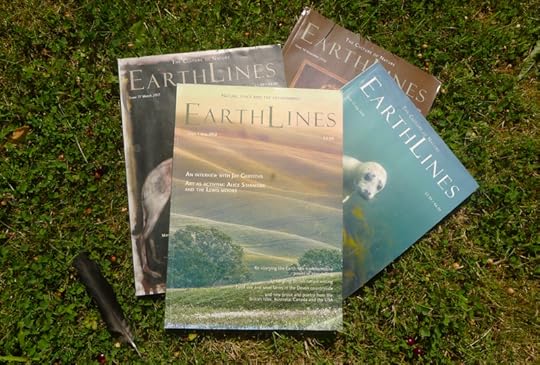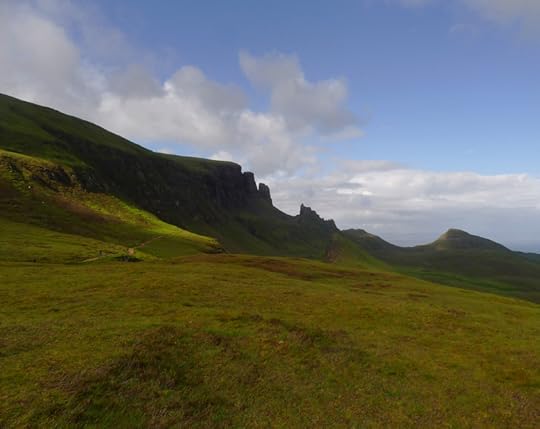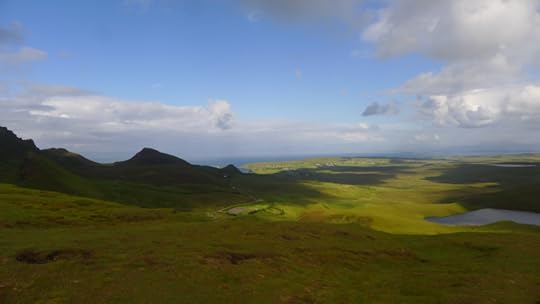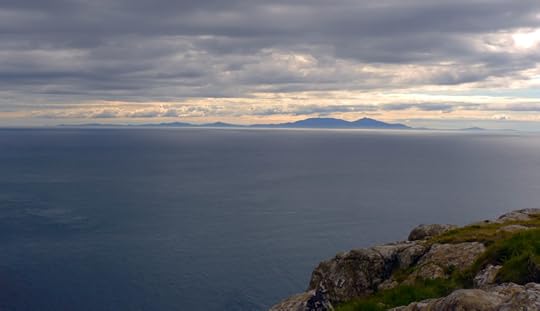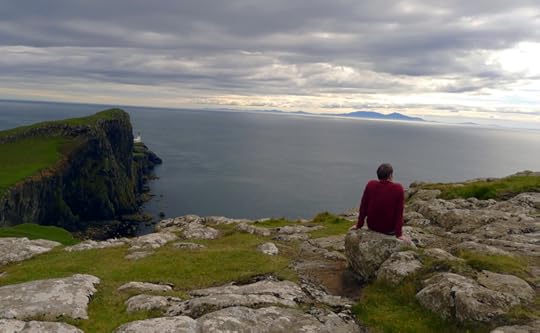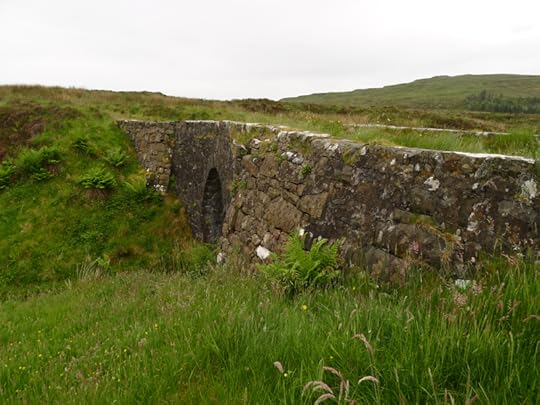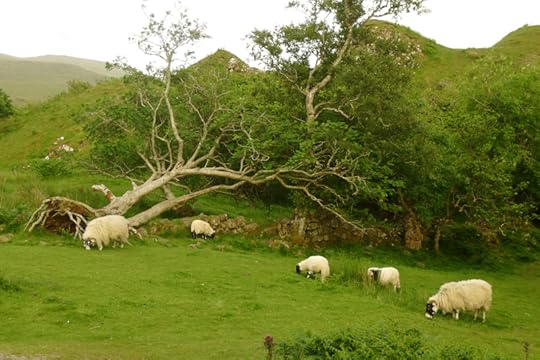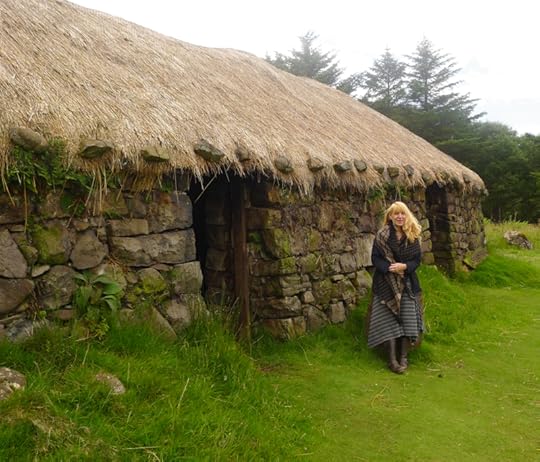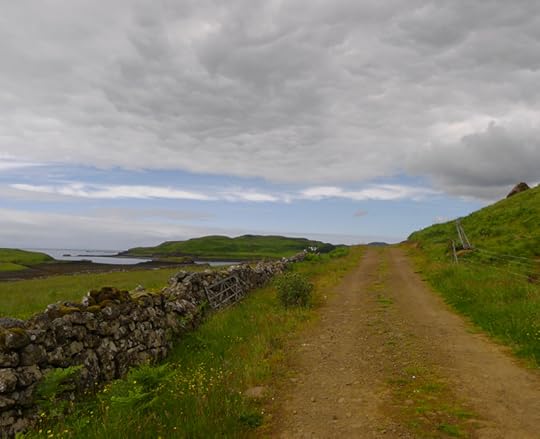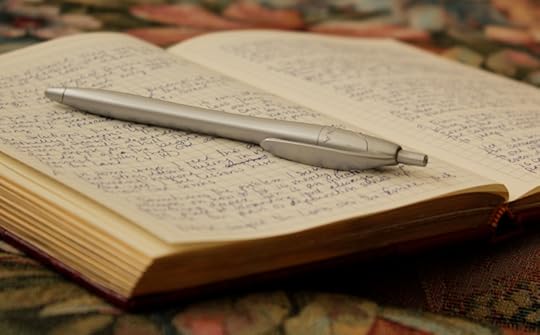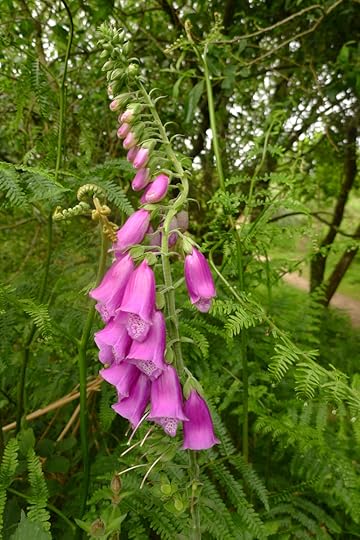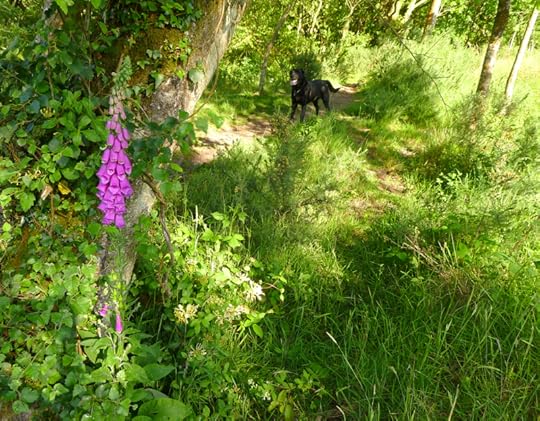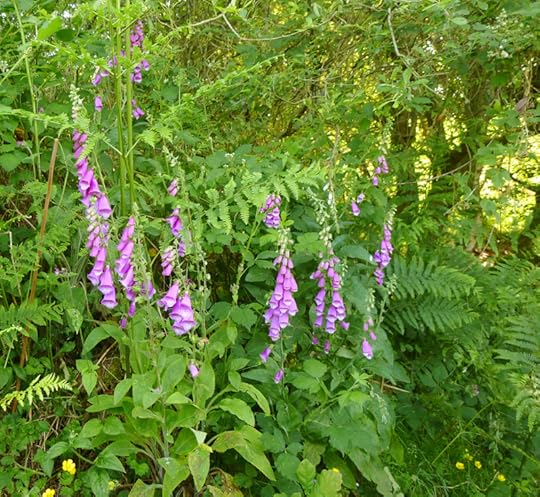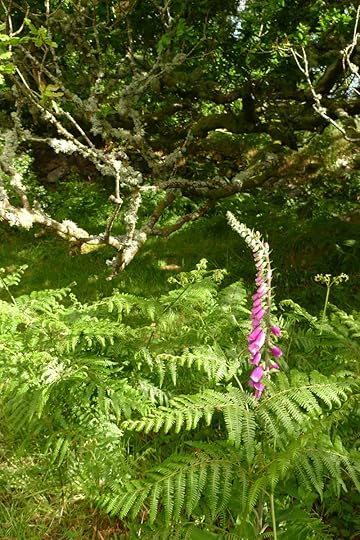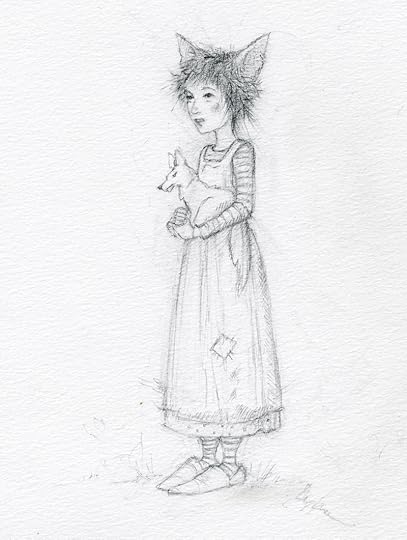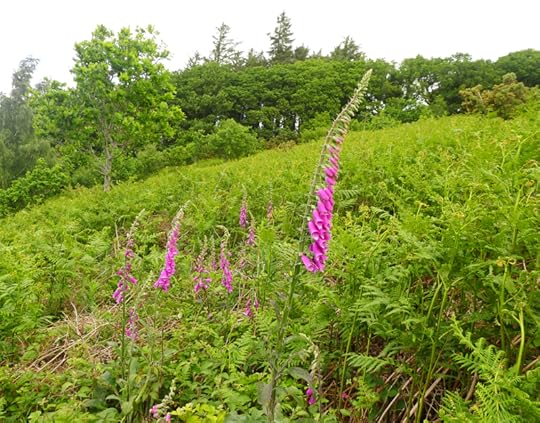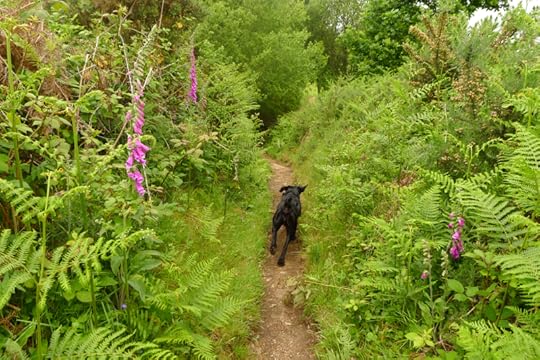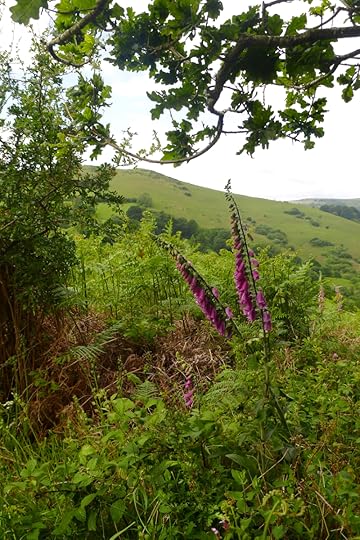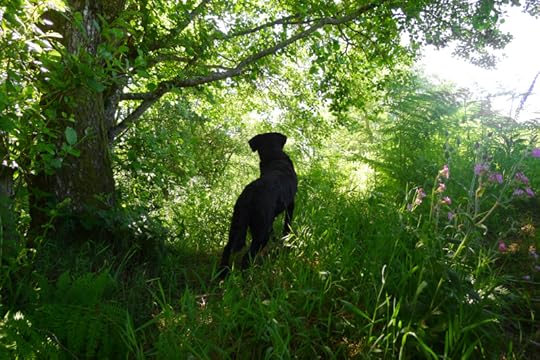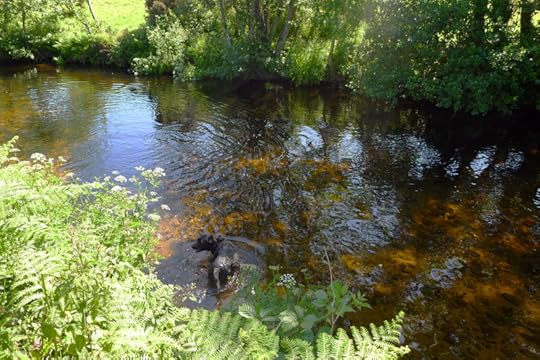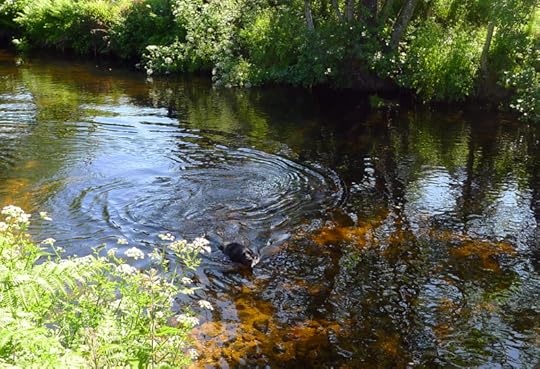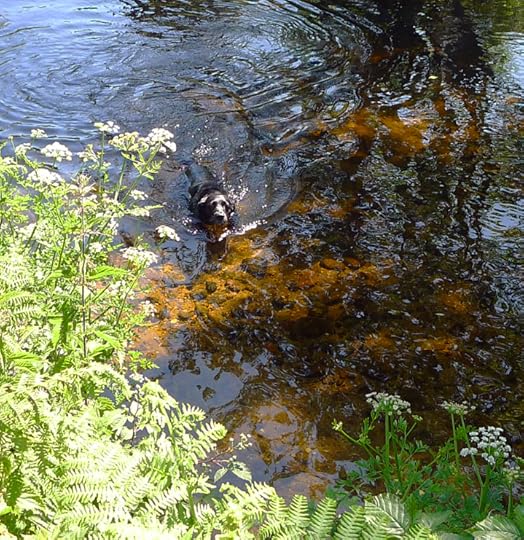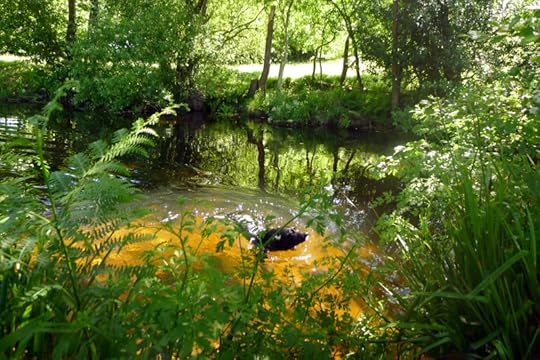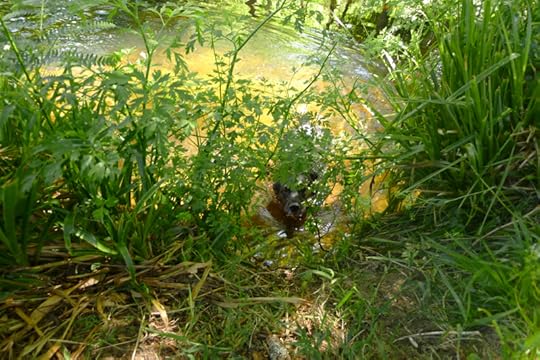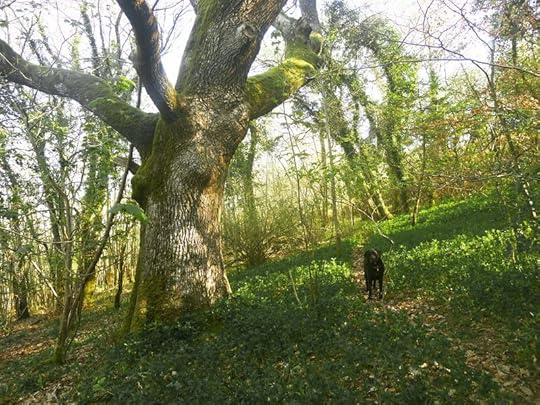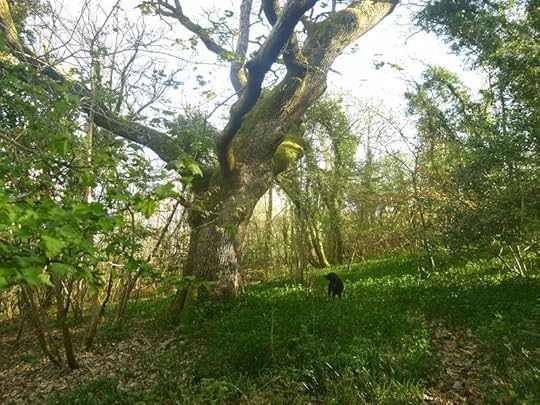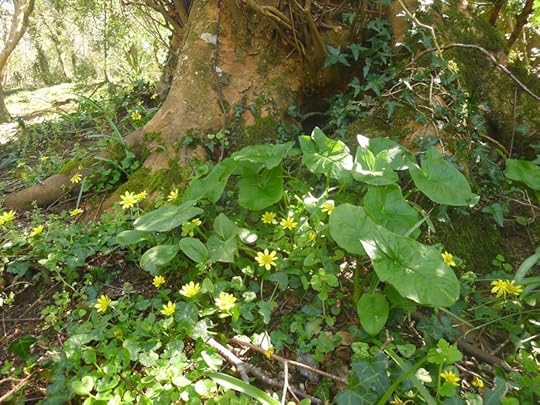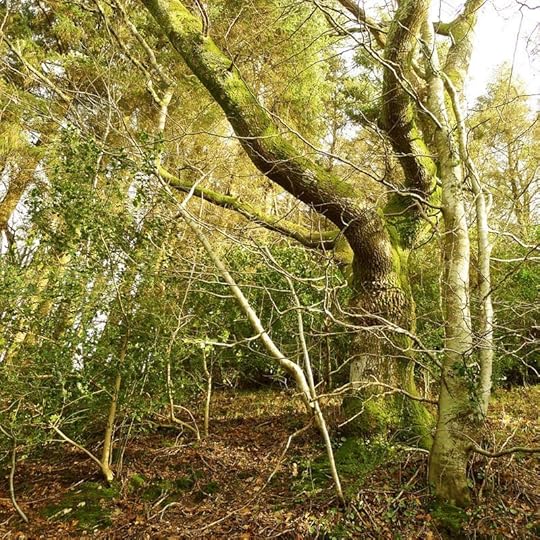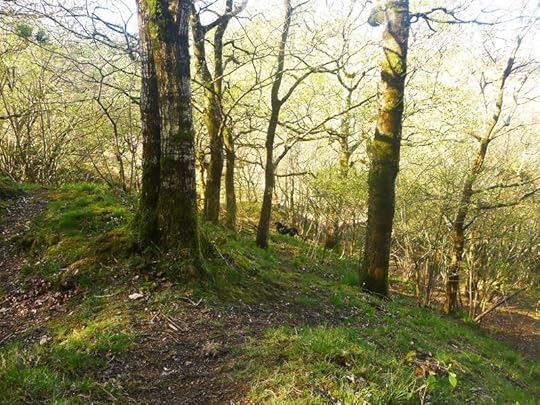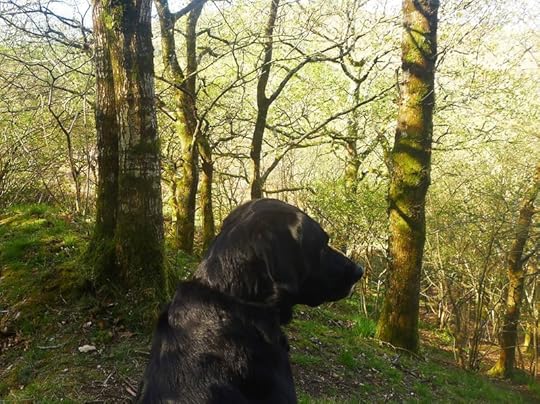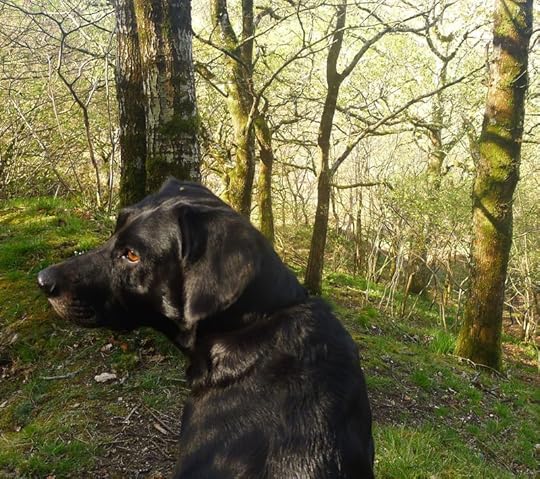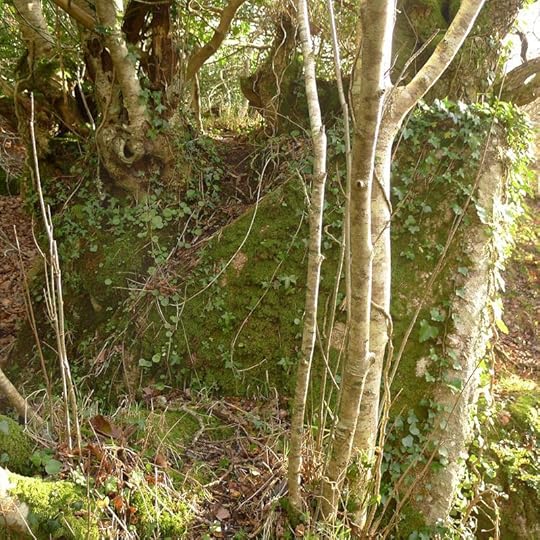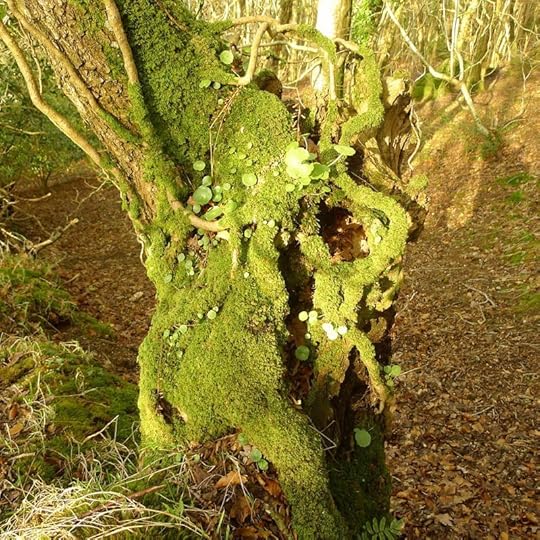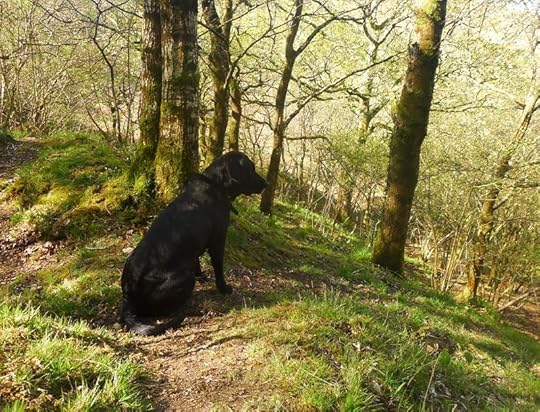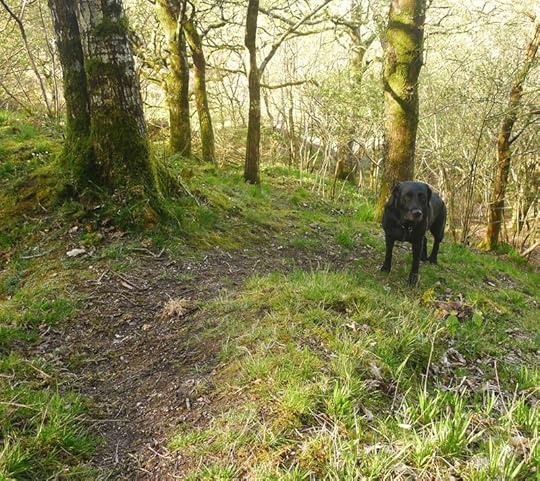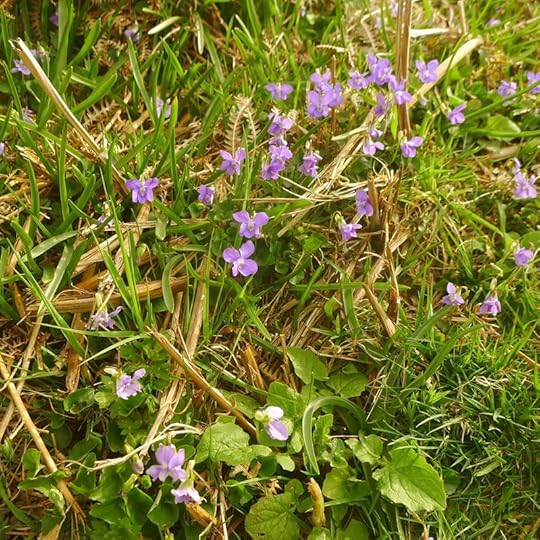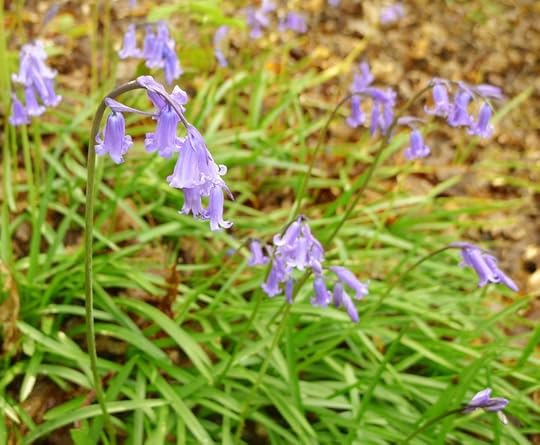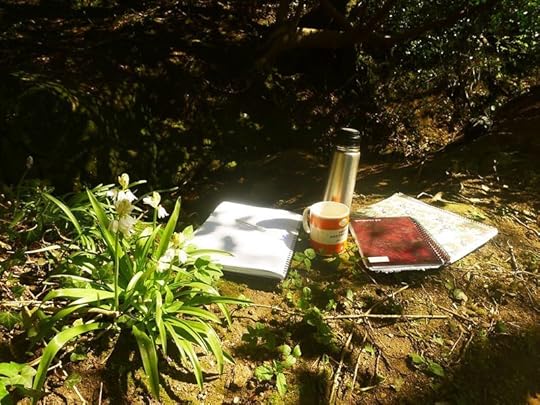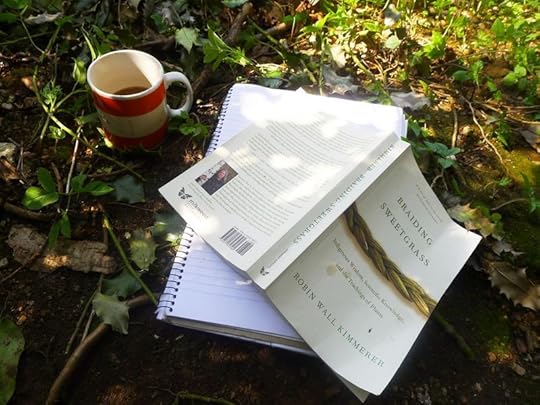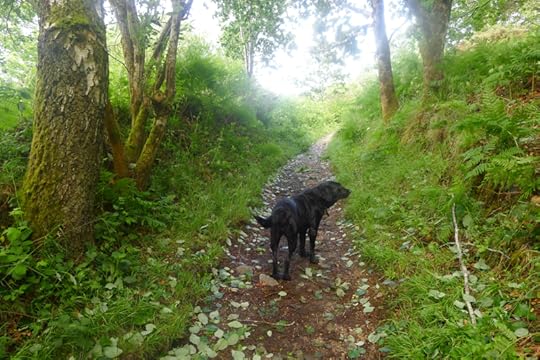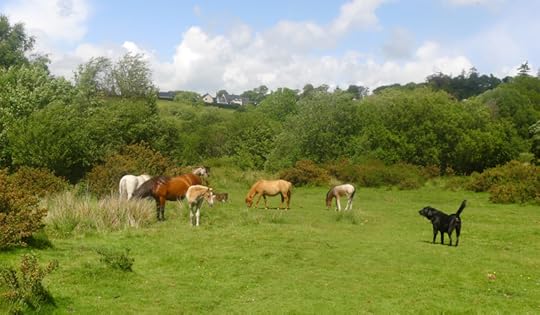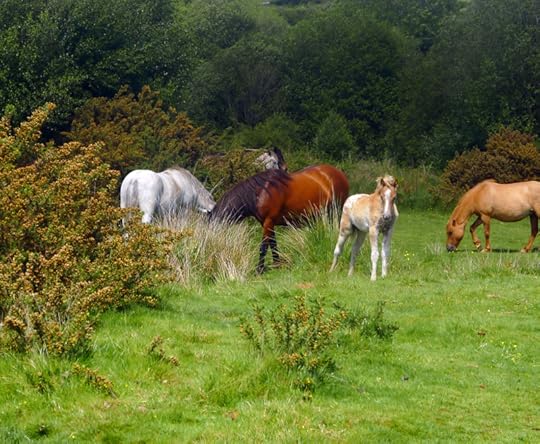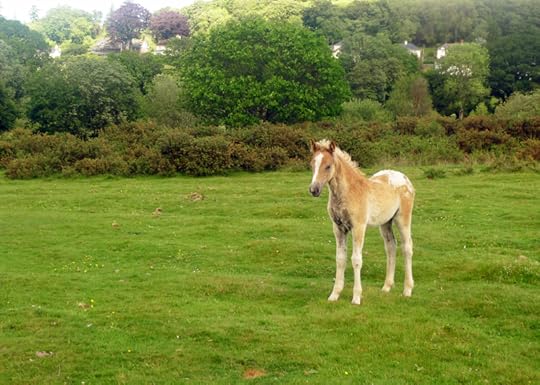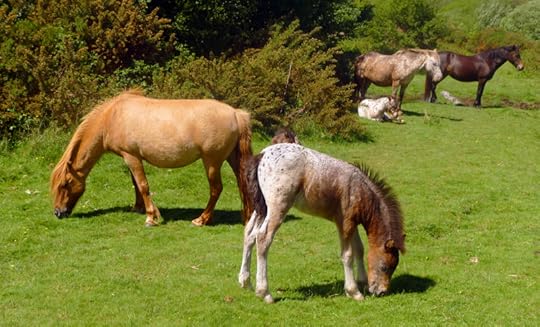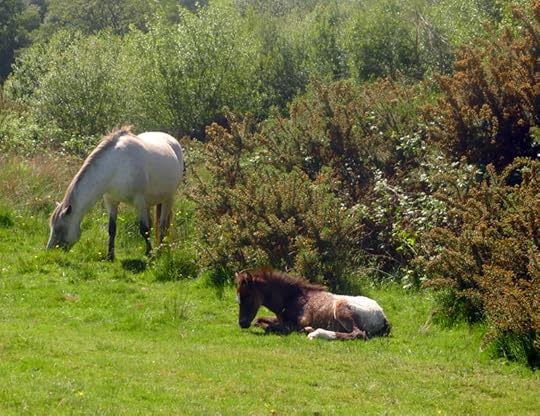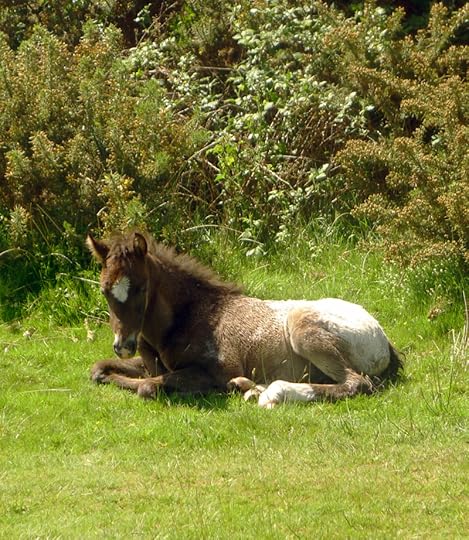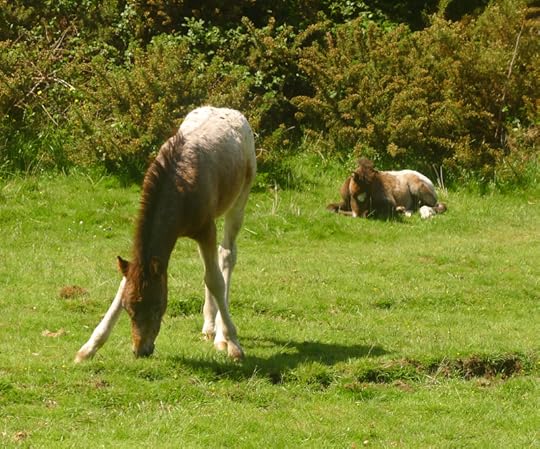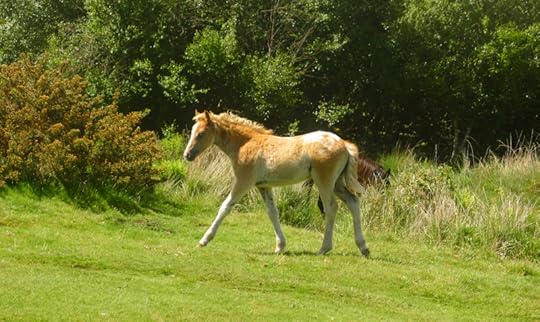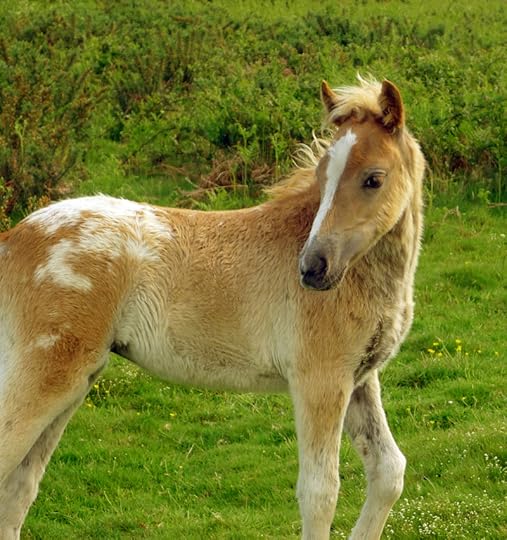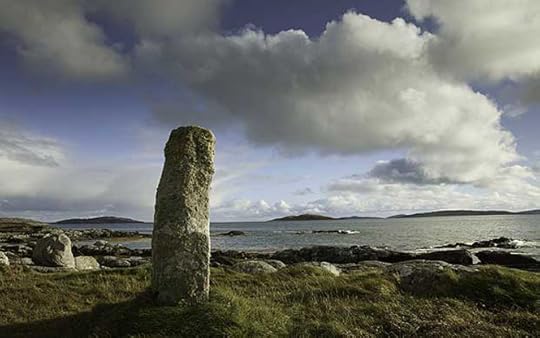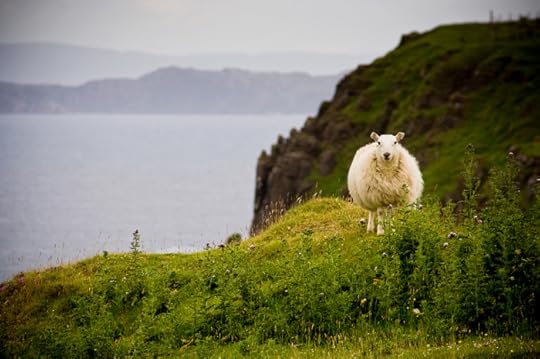Terri Windling's Blog, page 90
July 6, 2017
Myth & Moor update
July 5, 2017
The Writer's God is Mercury
I was sad to learn that EarthLines magazine has come to an end after an excellent run of 17 issues -- although I understand the need of its editors (Sharon Blackie and David Knowles) to move on and make time for their own writing, as this is precisely what Midori Snyder and I did when we ended our Journal of Mythic Arts after a decade of publication.
I recently came across the very first issue Earthlines, published in March 2012 from a remote croft on the Isle of Lewis -- not far, as the crow flies, from where I was staying last week on the Isle of Skye. One of the issue's treasures is an interview with Jay Griffiths, whose brilliant work (Wild, Kith, Pip Pip, etc.) takes up a fair amount of space on the Favorite Books shelf in my studio. In an exchange that seems even more timely now (in our current political climate), Sharon asks the author:
"How can you bear to see what is happening to the wild places of the earth that you see so clearly and love so much? The places, the ways of life that you write about with such passion in Wild, and that are threatened -- do you feel powerless because of the nature of the threats; does it instead force you to action (and if so, what's the source of the energy needed in that action -- anger? Desperation? Love?) Put simply, how do you live with it?"
"It is an injured, limping world, yes," Griffith responds. "Its vitality is reduced, yes, as if the full spectrum of the rainbow is being painted out with grey. The extinctions of this era -- extinctions of culture and of species, extinctions of minds and philosophies and languages -- will haunt the future in bleached and muted reproach, yes. And yet, and yet, and yet -- I want to paint the rainbow, as far as I can, prismatically, through language. You cannot ultimately break a rainbow, you can only fail to see its myriad, shattered beauties. And I believe in beauty as I believe in goodness, that people are profoundly good in spite of it all, and that when people know about a situation they can care about it.
"That is where the role of the writer comes in. The writer's god is Mercury the messenger, speaking between worlds. We listen to the world we can hear and see, and we speak to the other side, to the world of the reader."
"What do you make of the new growing interest in writing about nature, place, and the environment?" Sharon asks. "Do you see it as part of a process of change, a good thing, a vehicle for transformation -- or does it just refect a passive nostalgia for the things people have already given up on?"
Griffith answers: "When the tread is thinnest...when we sense the tragedy of endings...when life and grace is threatened by deafness and ugliness...when tenderness is bullied...when fences of enclosure overshadow the last scrap of commons...then, which is now, comes a ferocity on the side of life, to protect, to cherish and to envoice what cannot speak in human language."
It is my belief that this is a task that belongs to writers and other creators in the Mythic Arts field as well.
Words: The passages above come from EarthLines: Nature, Place, and the Environment (Issue 1, May 2012); all rights reserved by Sharon Blackie and Jay Griffiths. Back issues of the magazine are available here, and well worth collecting. Pictures: The photographs were taken last week on the Isle of Skye. Descriptions can be found in the picture captions.
July 4, 2017
The 4th of July
I cannot celebrate America's Independence Day when the country of my birth is in such a serious crisis. Instead, I celebrate and stand with all the good people who Resist, in their myriad ways, and refuse to be divided neighbor from neighbor. Stand strong, everyone. You have my respect, my gratitude, and my love.
The video above is from Nahko Bear, an American musician & earth activist of Apache, Mohawk, Puerto Rican, & Filipino heritage. (For more of his music, go here, here, and here.)
July 3, 2017
There and back again
Howard and I are back home in Chagford after a magical journey to Faerieland (also known as the Isle of Skye), where we celebrated various birthdays, anniversaries, book awards and other milestones in the lives of a group of good friends.
I'm taking a couple of days to catch up on work, then Myth & Moor will resume regular posting on Wednesday.
"Why do you go away? So that you can come back. So that you can see the place you came from with new eyes and extra colors." - Terry Pratchett (A Hatful of Sky)
���Traveling -- it leaves you speechless, then turns you into a storyteller.��� - Ibn Battuta (Travels)
And now you'll be telling stories
of my coming back
and they won't be false, and they won't be true
but they'll be real...
- Mary Oliver (from A Thousand Mornings)
June 22, 2017
Authors for Grenfell
I'm popping online briefly to let you know about the Authors for Grenfell Tower online auction, raising money for residents affected by the terrible fire in London last week.
Authors, editors, and other publishing people are offering all kinds of good bookish things to bid on. Go here for the full list.
My donation: Join me for a proper Devon cream tea, and a chat about fairy tales and fantasy, at the Mill End Hotel on the outskirts of Chagford. Go here for more information.
Please share with anyone who might be interested in supporting this fund-raising effort. Author friends: if you'd like to donate something, you can do so here.
Foxglove season
Howard is back from a month of teaching in London, and the hound is over the moon to have him home. Little does she know, poor duck, that both of us are about to leave her, heading far north to the Isle of Skye to celebrate a dear friend's birthday. Tilly adores her dog-sitter (Howard's mum), so it won't be such a terrible ordeal; she'll have good company, and plenty of walks and adventures. But I'm going to miss my little black shadow...probably even more than she'll miss me.
I'll be entirely off-line while we're traveling -- and then back to Devon, back to the studio, and back to Myth & Moor during the first week of July. I wish you all a good, peaceful, and wildly creative time as we move into the summer months.
The pictures today are for Pamela Dean and Stuart Hill, who are, as I recall, particular fans of foxgloves (as well as being wonderful novelists whose books I highly recommend).
For the folklore of foxgloves, see this previous post: "Little gloves for the foxes and the fey." Plus, there's a little summer magic for you hidden in the picture captions. (Run your cursor over the foxgloves to find it.)
June 21, 2017
Midsummer's Day
Night in Day
The night never wants to end, to give itself over
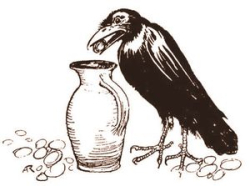 to light. So it traps itself in things: obsidian, crows.
to light. So it traps itself in things: obsidian, crows.
Even on summer solstice, the day of light���s great
triumph, where fields of sunflowers guzzle in the sun -
we break open the watermelon and spit out
black seeds, bits of night glistening on the grass.
- Joseph Stroud
Happy Summer Solstice, everyone!
It's been a week of gloriously warm weather here, and the hound and I have been down to river for a swim every morning since it started. These pictures of a very wet and happy Tilly were taken on Sunday.
"Green was the silence, wet was the light, the month of June trembled like a butterfly."
- Pablo Neruda
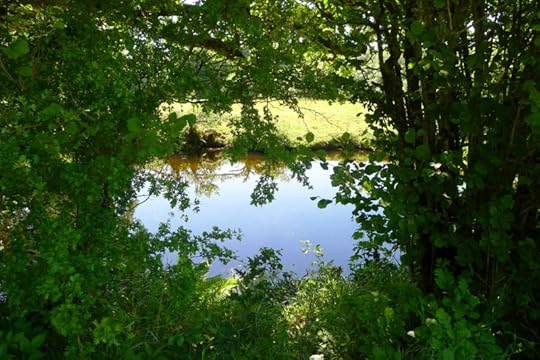 The poem above is from Of This World: New and Selected Poems, 1966-2006 by Joseph Stroud (Copper Canyon Press, 2009); all rights reserved by the author. The drawing is by Arthur Rackham.
The poem above is from Of This World: New and Selected Poems, 1966-2006 by Joseph Stroud (Copper Canyon Press, 2009); all rights reserved by the author. The drawing is by Arthur Rackham.
Homemade Ceremonies
In honor of Summer Solstice, a sacred day for country pagans like me and a special day for many others, I'd like to re-visit this post on the value of homemade ceremonies, and of living with gratitude, first published in the early spring, 2015.
In Braiding Sweetgrass, Native American author and biologist Robin Wall Kimmerer (of the Potowatomi people) explains how her family was severed from their traditional culture when her grandfather, like so many children of his generation, was taken from home by the U.S. government and sent to the Carlisle Indian School to be "civilized" (a truly shameful chapter of my country's history). It was not until many years later that his descendants reclaimed their language and heritage. Against this painful background, Kimmerer writes movingly of her father's morning ritual when the family camped on the slopes of Tahawus each summer (the Algonquin name for Mount Marcy in the Adirondaks):
"When he lifts the coffee pot from the stove the morning bustle stops; we know without being told that it's time to pay attention. He stands at the edge of camp with the coffeepot in his hands, holding the top in place with a folded pot holder. He pours coffee on the ground in a thick brown stream. The sunlight catches the flow, striping it amber and brown and black as it falls to the earth and steams in the cool morning air. With his face to the morning sun, he pours and speaks into the stillness, 'Here's to the gods of Tahawus.'"
"I was pretty sure no other family I knew began their day like this," she continues, "but I never questioned the source of those words and my father never explained. They were just part of our life among the lakes. But their rhythm made me feel at home and the ceremony drew a circle around our family. By those words we said, 'Here we are,' and I imagined that the land heard us -- murmured to itself, 'Ohh, here are the ones who know how to say thank you.' "
"Sometimes my father would name the gods of Forked Lake or South Pond or Brandy Brook Flow, wherever our tents were settled for the night. I came to know each place was inspirited, was home to others before we arrived and long after we left. As he called out the names and offered a gift, the first coffee, he quietly taught us the respect we owed these other beings and how to show our thanks for summer mornings.
"I knew that in the long-ago our people raised their thanks in morning songs, in prayer, in the offering of sacred tobacco. But at that time in our family history we didn't have sacred tobacco and we didn't know the songs -- they'd been taken away from my grandfather at the doors of the boarding school. But history moves in a circle and here we were, the next generation, back to the loon-filled lakes of our ancestors, back to the canoes....
"In the same way that the flow of coffee down the rock opened the leaves of the moss, ceremony brought the quiescent back to life, opened my mind and heart to what I knew, but had forgotten. The words and the coffee called us to remember that these woods and lakes were a gift. Ceremonies large and small have the power to focus attention to a way of living awake in the world. The visible became invisible, merging with the soil. It may have been a secondhand ceremony, but...I recognized that the earth drank it up as if it were right. The land knows you, even when you are lost.
"A people's story moves along like a canoe caught in the current, being carried closer and closer to where we had begun. As I grew up, my family found again the tribal connections that had been frayed, but never broken, by history. We found the people who knew our true names. And when I first heard in Oklahoma the sending of thanks to the four directions at the sunrise lodge -- the offering in the old language of the sacred tobacco -- I heard it as if in my father's voice. The language was different but the heart was the same.
"Ours was a solitary ceremony, but fed from the same bond with the land, founded on respect and gratitude. Now the circle drawn around us is bigger, encompassing a whole people to which we again belong. But still the offering says, 'Here we are,' and still I hear at the end of the words the land murmuring to itself, 'Ohh, here are the ones who know how to say thank you.' Today my father can speak his prayers in our language. But it was 'Here's to the gods of Tahawus' that came first, in the voice I will always hear. It was in the presence of ancient ceremonies that I understood that our coffee offering was not secondhand, it was ours."
The power of ceremony, writes Kimmerer, is that "it marries the mundane to the sacred. The water turns to wine, the coffee to a prayer. The material and the spiritual mingle like grounds mixed with humus, transformed like steam rising from a mug into the morning mist. What else can you offer the earth, which has everything? What else can you give but something of yourself? A homemade ceremony, ceremony that makes a home."
I've written before about my own morning rituals, which are solitary ones except for Tilly's presence, and also about how much I prefer that solitude to be undisturbed in the enchanted liminal space between waking up and creative work. We can draw parallels between the rituals of beginning / rituals of approach we employ to facilitate creative work and the morning ritual Kimmerer describes. Ceremony, meditation, creative routines and practices designed to ease us into work, these are all means of acknowledging the transition from one state into another: from sleep into a brand new day, from morning chores and mundane concerns to the focused state of creativity and inspiration.
But there's also an important difference here -- which, I fear, often gets lost when First Nation ceremonies are too-casually adapted by non-native peoples. While the coffee ritual may indeed have helped Kimmerer's father to feel more meditative, centered, and ready to start his day, this therapeutic aspect of the ceremony is not its purpose or focus. Rather, it is an act of gratitude, an acknowledgement of the larger world of which we humans are just one part. There is no ego in the ritual, no self-aggrandizing, no "look at me, look how spiritual I am" -- just the simple, humble act of a man offering a humble gift to creation.
In my own morning rituals, gratitude to the land, to our animal neighbors, to the vast nonhuman world plays a crucial part. It is why I write and why I paint: sheer gratitude for being alive, even on -- perhaps especially on -- those mornings when, because of poor health or other difficulties, life feels most burdensome. I want to create not from a place of ego and self-aggrandizement but as a means of gifting stories to the beautiful land that feeds and clothes and houses and sustains me; and to give, as Pablo Neruda once said, "something resiny, earthlike and fragrant in exchange for the gift of human brotherhood."
Some days I succeed, and some days I don't. But each morning I wake up, climb the hill with Tilly, pour steaming coffee from a silver thermos as birdsong greets the sun, and I try again. And again. And again. On the hill, I remember that my place in the world is very small. And very precious. And I'm grateful for it all.
June 20, 2017
Art slips through
This week, while the UK government begins to negotiate our exit from Europe -- a severing that so many of us do not want -- here's a passage from Jeanette Winterson's fine essay, "What is Art For?" (2014):
"We live in a money culture," writes Winterson. "[There is] a general public feeling that if our economy is in good shape, the world is in good shape. And governments are praised not by their health and education provision, or their welfare record, or by employment or foreign policy, but by the robustness -- or not -- of the central economy. Capitalism says that society must become richer and richer, that whatever the cost, economies must grow. Once we subscribe to money as the core value, what follows is a deregulated, 24-hour society, where the right to sleep, the right to peace and quiet, the right to human-friendly work patterns and human-friendly hours all become far less important that the right to make money.
"Against this golden calf in the wilderness, where everybody comes to buy and sell, art offers a different rate of exchange. The artist does not turn time into money; the artist -- whether writer, painter, musician -- turns time into energy, time into intensity, time into vision. And the exchange that art offers is an exchange in kind -- of energy for energy, intensity for intensity, vision for vision.
"Can we make the return? Do we want to?" she asks. "When people complain that art is hard work, they really mean that our increasingly passive entertainments do not equip us for the demands that art makes. Art is not a passive activity. We have to get involved. Imagination always means involvement, and as soon as your mind is open to a different level of seeing, thinking, hearing, or understanding, you start asking questions. Money culture hates questions.
"Part of the triumph of capitalism has been to make itself seem natural -- not only the best way to live but also the inevitable way, the only way. Art asks questions. I don't mean directly, or politically, though that is sometimes the case. I mean that art, by its very nature, is a question. A question about who we are, about what things matter.
"Art stands as an eternal question mark at the end of money's confident rhetoric. This is partly because artists themselves cannot work in the way money culture demands -- that is, to order, with guaranteed results in a specified time -- and partly because art just can't be controlled. It doesn't fit in with any economic models. It can't be predicted. It can't be done away with or phased out or put on growth hormones. So either we ignore it and say it's not essential, not important -- might have been once, but isn't now -- or we indulge it and see it as a kind of charming charity, a sort of ornament to life the way that ladies were once ornaments to gentlemen.
"But art is not an ornament, or a charity, or a waste of time. It is a completely different way of looking at the world. At the core of art is an intensity of experience totally lacking from a money culture, whose purpose is to dilute every other value to below the value of itself. Art wants you to concentrate; money wants you to dissipate. Far from being about hard work, a money culture is about incredible waste of effort, as people labor for no other purpose than to make more of the same: money. You can waste your life, but money has to be saved -- because money is precious and life is not.
"But what can art do for us, in a world of corporate culture? Isn't it just temporary relief, or escapism?
"When I sit down to read a book without interruption or to listen to a piece of music at home or in the concert hall, without interruption, or to look at a painting, without interruption, the first thing I am doing is turning my gaze inward. The outside world, with all its demands and distractions, has to wait -- not something it likes doing. As I turn my attention away from the world, I draw my energy away from the world. I'm not passive, but I'm in a state of alert rest, where the artwork can reach me with its own energies, very different energies to the getting and spending going on all around me. The creativity and concentration put into the making of the art-work begins to cross-current into me. It's not simply about being recharged, as in a good night's sleep or a vacation; it's about being charged at a different voltage.
"When I read Emily Dickinson or William Carlos Willams, I'm not just reading a poet's take on the world -- I am entering into a completely different world, and I don't mean a fantasy screen. I mean a world built from the beginning on different principles. William Carlos Williams wrote: It is difficult / to get the news from poems / yet men die miserably every day / for lack / of what is found there.
"Art's counterculture, however diverse, holds in plain sight what a material world denies: love and imagination. Art is made out of a passionate, reckless love of the work in its own right, as though nothing else exists, and an imaginative force that generates something new out of disparate materials....
"For the maker, and later the reader or the viewer or the listener, there is no obvious reward. There is only the-thing-itself, because you want it, because you're drawn to it. It speaks to the part of us that is fully human, the part that belongs fully to ourselves, not mechanized, socialized, pacified, integrated, but voice-to-voice, across time, singing a song pitched to the human ear, singing of destiny, of fear, of loss, of hope, of renewal, of change, of connection, of all the subtle and fragile relationships between men and women, their children, their country, and all the things not measured or understood by the census figures and gross national product.
"Art slips through, and us with it -- slips past the border police and the currency controls, to talk as we've always wanted to, about matters of the spirit and the heart, to imagine a world not dominated by numbers, to find in colors and poetry and sand an equivalence to our deepest feelings, a language for who we are."
Words: The passage above is from "What is Art For?" by Jeanette Winterson, published in The World Split Open (Tin House Books, 2014); all rights reserved by the author. Pictures: A quiet morning's encounter with our local herd of Dartmoor ponies. They often come down from the moor to shelter their foals on the slope of the village Commons.
June 18, 2017
Tunes for a Monday Morning
I'm heading up the Isle of Skye at the end of the week (to celebrate an old friend's birthday), so I'm turning northward today with Gaelic music by musicians from Scotland and beyond.
To start with (above), a short video by Julie Fowlis, a singer from Uist in the Outer Hebrides, explaining why the preservation of the Gaelic language remains so important today. "Speaking a language that has been around for thousands of years," says Fowlis, "you get a different perspective on your own country and an understanding of the people you come from. By singing the traditional songs, you get a better understanding of your own area and it brings the stories of local communities and the history of the people alive."
In Port, a programme for the BBC, Fowlis teamed up with Irish singer Muireann NicAmhlaoibh to investigate Gaelic music and culture in its variations across the two countries. In the video below, they bring Irish bodhr��n player Donnchadh Gough (from Dan��) and Irish singer S��le Denvir (from L��adan) to the Isle of North Uist for a session with Scottish musicians Rona Lightfoot, Catriona Garbutt, Gillebr��de MacIlleMhaoil, and Seonaidh MacIntyre.
In the next two videos, also from Port, Fowlis & NicAmhlaoibh visit the Orkney Isles in the far north of Scotland.
Above, Fowlis sings a Gaelic version of "The Great Silkie of Sule Skerry," backed up by The Unthanks (from Northumbria) and Orcadian musicians.
Below, they're joined by Irish singer Liam �� Maonla�� (from The Hothouse Flowers), performing "Amhr��n na Heascainne."
Above: Kathleen MacInnes, another fine singer from Uist, performs "Gur milis M��rag" with American bluegrass musician Sarah Jarosz, from Texas. The video was filmed back in 2011 for the BBC's TransAtlantic Sessions programme.
Below, moving from the pastoral to the urban, and the old to the new:
"An D�� L��,' " a timely song by the Scottish band M��nran, from their fine new album of the same name, full of songs about personal and political upheavals both historic and contemporary. The title comes from a Gaelic expression meaning "great change." The lyrics to the song are here.
Terri Windling's Blog
- Terri Windling's profile
- 708 followers


